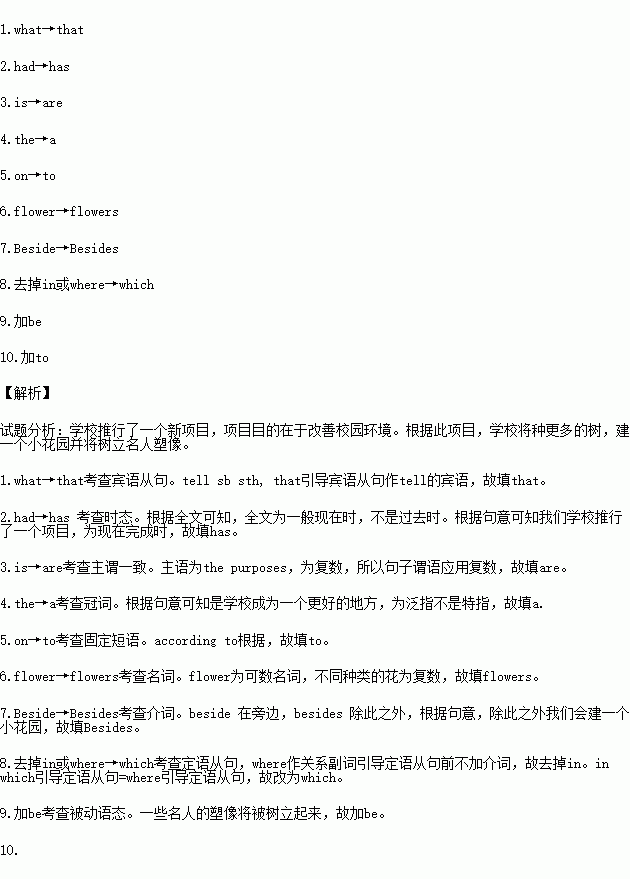题目内容
短文改错(共10小题; 每小题1分, 满分10分)
增加: 在缺词处加一个漏字符号(∧), 并在其下面写出该加的词。
删除: 把多余的词用斜线(﹨)画掉。
修改: 在错的词下画一横线, 并在该词下面写出修改后的词。
I’d like to tell you what our school had worked out a new program. The purposes of the program is to make our school more beautiful, and to turn our school into the better place for us to study and live in. According on the program, we will plant different kinds of trees, flower and grass around our school. Beside, we will build a small garden in where we can do some reading and take a rest. What’s more, some statues of famous people will set up to encourage us work harder. Don’t you think it a wonderful program?
练习册系列答案
相关题目

